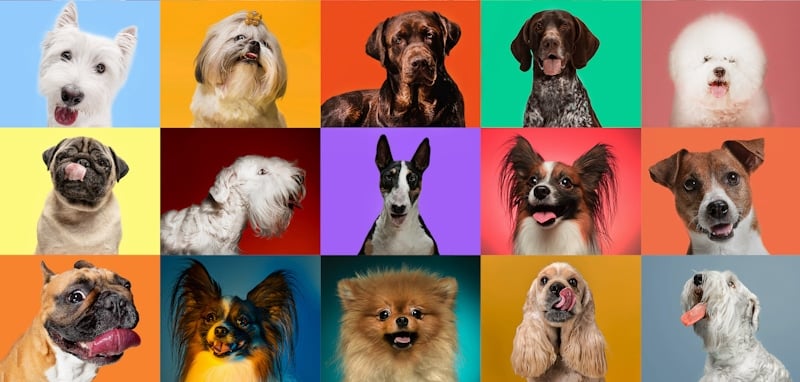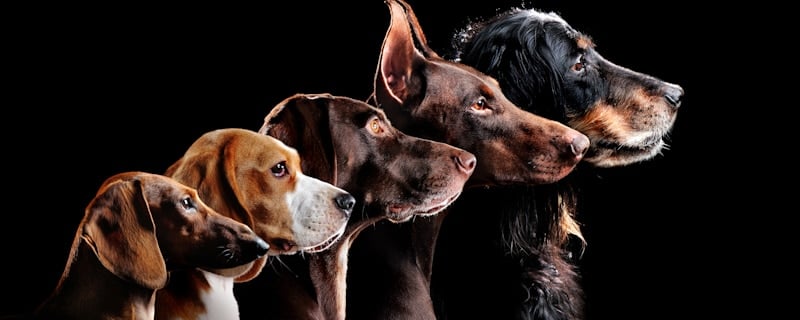Writing correctly is such a nifty and tricky art. Certain things that would make perfect sense in our very rational and structured mind are not as we may think, yet others that would be completely farfetched do turn out to be true. And this is the case with dog breeds.
Capitalization rules include if the name starts a text, paragraph or sentence, if the breed is named after a human, and Also if the name, or part of it, makes reference to its geographic origin. In compound names, remember that if the first word is capitalized, the rest don’t necessarily need to be.
To Capitalize Or Not To Capitalize? That Is Indeed The Question
In order to figure out when, or what, to put in capital words, we need to understand first the rules that apply to general capitalization. Capitalization often responds to the nature of the word or words, their condition within the text where they’re being included, or the context they’re spoken in.

Proper Nouns
Rules And Characteristics
Also called proper names, our dear and reliable source Merriam-Webster defines them as “nouns that designate a particular being or thing, does not take a limiting modifier, and is usually capitalized in English.” Now, in layman’s, first, this means that proper nouns are names used to individualize something from the rest of a class, collective, species, or genre. Second, it means that these names do not admit, or need, any other word serving as a modifier to change, clarify or limit them (like by using adjectives or adverbs). And third and last, they’re usually spelled with an initial capital letter in order to make it evident that we’re talking about a specific thing of being.
The best example of this is, of course, your name. Let’s call you John Smith or Jane. Your name (albeit a bit generic) has been assigned to you at birth by your parents to separate and distinguish from other chubby lovely babies from the other nice families, who most definitely wouldn’t want their children confused with you either, therefore naming their own kids Alice, or Mary, or Frank, or Jim.
You also don’t need to say you’re “the awesome” John (or Jane) Smith or “genuinely” John (or Jane) Smith to be individualized. And indeed, you will write your name in capital initials because you are John (or Jane) Smith, the boy or man, not a john smith, a random branch of a tree.
Proper nouns also include brand names (Coca Cola, Pepsi, Seagram’s, etc.); companies (Amazon, Hewlett Packard, Royal Caribbean, etc.); countries (United States, Russia, Maldives, etc.); ad adjectives derived from proper nouns (Shakespearean, Freudian, Machiavellian, etc.); institutions and organizations (Harvard, Cambridge, The US Treasury, etc.); holidays (Easter, Christmas, Thanksgiving, etc.); all planets (Earth, Mars, Venus, etc.); demonyms or nationalities (African, Australian, Canadian, etc.); among many others.
But really, seeing this list that could just go on and on, we find in common that all these are proper nouns on themselves, as they serve to identify and individualize all things belonging to each category.
How is this relevant to our current endeavor, you may ask? Dog breeds indeed are names used to individualize and set apart one breed from another. Still, we need to find out whether this is individual enough to merit capitalization.
The First Word On A Text And, Thus, On a Sentence
The first word on any text or writing will always be capitalized, no matter its type of word. So, whether or not this first word is a proper noun or not, it will be capitalized just for being the very first. This rule extends to the first word on every sentence, identified by always immediately following a period or following a period at the end of a paragraph. Thus, being this word the first of a new one.
This Not That. Not All Same Rules Apply.
Remember the planets? Well, you capitalize those, but not other celestial bodies, like the sun or the moon. And like this, rules that apply to certain things may not apply to many others that would seem related (and may even be).
You capitalize months but not seasons (May – summer). You capitalize the name of the medical condition but not of the disease itself (Costello syndrome). You capitalize titles, but not occupations (Professor – architect). You capitalize regions, but not points of the compass (West Coast – north). You capitalize course titles but don’t capitalize general subjects (AP History – math). And, you don’t capitalize animals, but you do capitalize the name of the breed in some instances (dog – German shepherd). Here’s where we go in.
A Matter Of Breed
Let’s get down to the point at hand. Dog breeds are usually found to include, in its name, a noun representing an occupation or characteristic of the variety it represents. Also, it is common to find a reference to the nationality where the particular breed originated. And lastly, you have names that seem purely random.
After first exploring the most general rules of capitalization, we can certainly apply them to develop some rules of thumb regarding the capitalization of dog breed names.
Geo-Referencing Breeds
As mentioned, some breeds are named after the country where they originated. In these cases, every time you see a breed with a demonym, as was already stated, this portion will be capitalized. Among the most prominent examples of this rule are:
- German shepherds
- French bulldog
- Afghan hound
- Alaskan Malamute
- American foxhound
- Australian retriever
- Siberian husky
- Belgian Malinois
- Black Russian terrier
- Bolognese
- Boston terrier
- Irish setter
- Yorkshire terrier
- Belgian Tervuren
Breeds Named After People
Some very lucky breeders or historically relevant dog enthusiasts have had whole breeds named after them. In this case, we can easily find the rule of capitalizing proper nouns applicable here.
- Jack Russell terrier
- Cavalier King Charles spaniel
- Doberman
- Boykin spaniel
- Gordon setter
- Plott hound
Cases Not To Capitalize, Ever!
Some breeds are not to be capitalized, breaking some rules that one would think fundamental in the process. For example:
Classes Or Types Of Dogs
Within dogs, you’ll find certain types that meet specific physical criteria to be considered their own class. This class usually accompanies other (usually but not always) proper names to individualize one breed from another within the same class.
Whether it is that dogs are typically short or stout, with coily hair or with long manes, or have a short snout or quite the opposite, these terms have become generic and will not be capitalized, as they serve as common (and not proper) nouns, describing on their own a set preset of characteristics that will always be met by the specific breeds they represent:
- terrier
- bulldog
- spaniel
- collie
- boxer
Listed By Profession
Some breeds are named after the activity or occupation they’re bred to perform, also constituting a class on their own, and therefore becoming common nouns:
- hound
- shepherd
- cattle dog
- retriever
- kelpie
- sheepdog
- setter
- mountain dog
Proper [Dog] Breeds
Like people, some breeds have their own names that do not derive from anything besides the creativity of the person who named them. Curiously enough, these breeds are not to be capitalized, simply because they don’t:
- chow chow
- pug
- poodle
- corgi
- beagle
- akita
- dalmatian
- schnauzer
- chihuahua
Final Thoughts
If we’ve learned something about this exercise, it’s that dog breeds have more capitalization rules than the English language. Dog breed capitalization is suis generis, case-by-case, highly complex and as a rule, follows no rules. Our sincere recommendation is that, if you really need to know for sure, visit our dear friends at Merriam-Webster, who will most definitely shed some light on this intricate matter. After all, even dog enthusiasts deserve to be grammatically correct.
Shawn Manaher is the founder and CEO of The Content Authority. He’s one part content manager, one part writing ninja organizer, and two parts leader of top content creators. You don’t even want to know what he calls pancakes.


